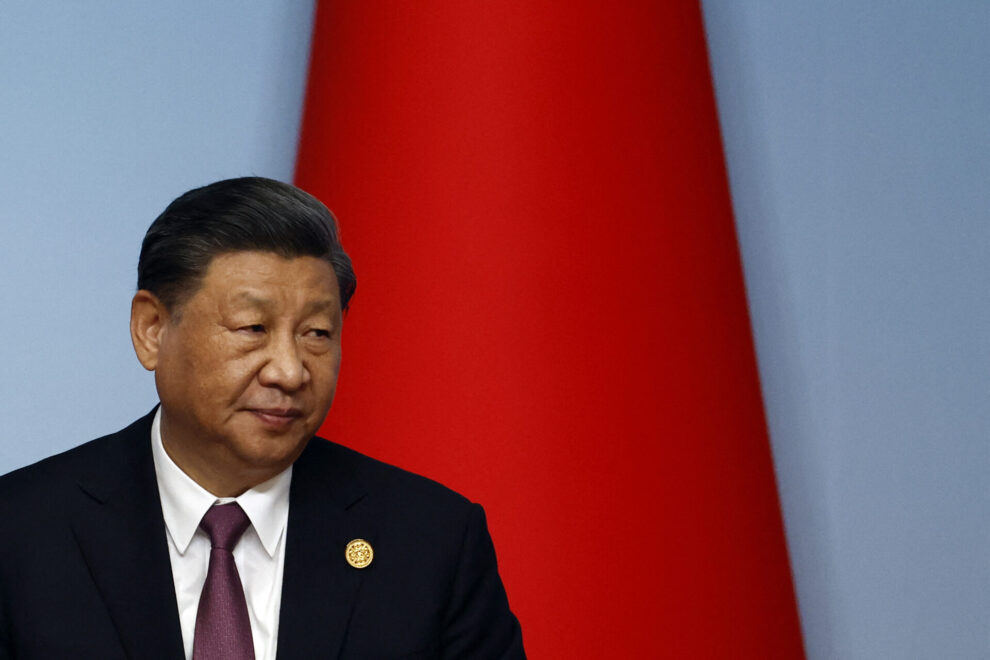Western nations increasingly see China as an interventionist power that is not improving global security, according to recent polling, as Beijing struggles to square its desired peacemaker image with the political realities of its expanding global influence
The Pew Research Center conducted a 30,000-person survey across 24 nations between February and May and found that people living in European, North American and Indo-Pacific democracies are particularly wary of China’s influence. The sentiment was less strong, though still present, among African and South American respondents.A median of 71 percent of the 30,000 people polled felt that China does not contribute either much or at all to international peace and stability, versus 23 percent who felt China does. Americans (80 percent), Dutch (86 percent), British (80 percent), Germans (80 percent), and French (75 percent) were among those who felt most strongly that Beijing is a negative influence on global affairs.
nations emphatically agreed, with 87 percent of South Koreans, 85 percent of Australians, and 85 percent of Japanese feeling the same.
The list of nations—the United States, Canada, France, Germany, Greece, Italy, Japan, Netherlands, South Korea, Spain, Sweden, the United Kingdom, Argentina, Brazil, Hungary, India, Indonesia, Israel, Kenya, Mexico, Nigeria, Poland and South Africa, and Australia—is dominated by Western liberal democracies, with inherent ideological tensions likely somewhat explaining the negative views of Chinese foreign influence.
But only in Indonesia, Kenya and Nigeria did a majority of respondents say Beijing contributes either a fair amount or a great deal to international peace and stability.
Newsweek reached out to the Chinese Foreign Ministry via email for comment.
China—already considered by many an economic and technological superpower—is still shaping its military and diplomatic clout abroad. Major decades-long investment in the former is openly intended to eventually challenge American hegemony, but on the diplomatic battlefield, Beijing is following a less publicly combative path.
Among the salient diplomatic issues that have helped shape global opinions of China this year are one striking success and one ongoing failure.
The former was the landmark Iran-Saudi Arabia normalization deal signed in April, in which China unexpectedly brokered a détente few thought likely given the deep and historic animosity between the Middle East’s power players.
But China’s unconvincing neutrality regarding Russia’s war on Ukraine has somewhat eroded global trust in Beijing, particularly among the Euro-Atlantic and Indo-Pacific nations rallying to Kyiv’s cause. China’s de facto backing for Russia has undermined its continued calls for peace and the anemic peace plan it proposed in March.
North vs. South
Larger issues involving China—among them the fate of Taiwan, the situation in the South China Sea, lingering frustrations about the pandemic, the brewing showdown with the U.S., human rights, and concerns about political interference—have “completely dwarfed” Beijing’s diplomatic efforts, Andrew Small, a senior transatlantic fellow at the German Marshall Fund, told Newsweek.
“Publics have evidently not seen either the Saudi-Iranian deal as particularly significant or the Chinese efforts on Ukraine as particularly credible,” Small said.
Small noted Beijing will not necessarily be too concerned with continued Western skepticism.
“In one sense, the argument for what China has been trying to do on Ukraine and in some of these other efforts was positioning in the ‘Global South,'” he said. “The view on their side had been that no one in Europe is going to take this seriously, but they are able to position themselves through this in the Global South as an actor that approaches these issues in a neutral way.”
Russian President Vladimir Putin (R) and China’s President Xi Jinping deliver a joint statement in Moscow, on March 21, 2023. China’s de facto support of Russia’s war on Ukraine has angered Western nations.MIKHAIL TERESHCHENKO/SPUTNIK/AFP VIA GETTY IMAGES
But the poll’s findings also suggest that Beijing’s self-framing might not be playing out as it hoped. A median of 57 percent of those surveyed said they felt China interferes in other countries affairs either a fair amount or a great deal.
The sentiment was most notable in Europe, where a majority of national respondents excluding Hungarians agreed, as well as in North America. A majority of all those in Indo-Pacific nations apart from Indonesia saw Beijing as interventionist.
Even in the four of the six African and South American nations surveyed a majority said China intervened at least somewhat in other countries’ affairs. Fifty percent of South Africans and 46 percent of Argentinians also agreed.
“It’s such a mantra in Chinese foreign policy, so foundational in the way that they frame things that this is not what they do, and it is the antithesis of the Western approach,” Small said.
Against this backdrop, Small added, it is “striking” to see so many nations feeling that China is indeed intervening abroad. The data suggests, he said, that the perception of Chinese anti-interventionism is being “shredded.
“Recent months have seen a renewed China-U.S. effort to thaw chilly bilateral relations. In June, Secretary of State Antony Blinken visited Beijing to meet with Chinese President Xi Jinping. And earlier this week, Blinken told CNN the U.S. wants to “put some stability into the relationship.
“But the long-term disputes show no signs of easing. While visiting Tonga this week, Blinken hit out at what he called China’s “increasingly problematic behavior” in the Indo-Pacific.
In Europe too, major nations are increasingly concerned about Chinese espionage and influence, even if leaders like French President Emmanuel Macron and German Chancellor Olaf Scholz are still courting investment.
Worsening Euro-Atlantic ties with Beijing, Small said, might accelerate a brewing confrontation.”
To a certain extent, this will validate an analysis on the Chinese side that starts to write off the West,” he said, and instead focus on a “winnable” public opinion battle in the developing world.
Source: Newsweek.com










